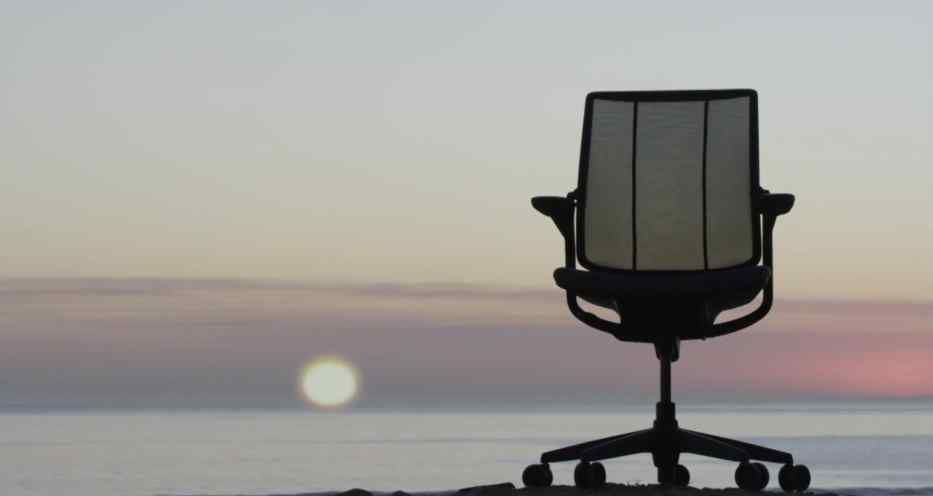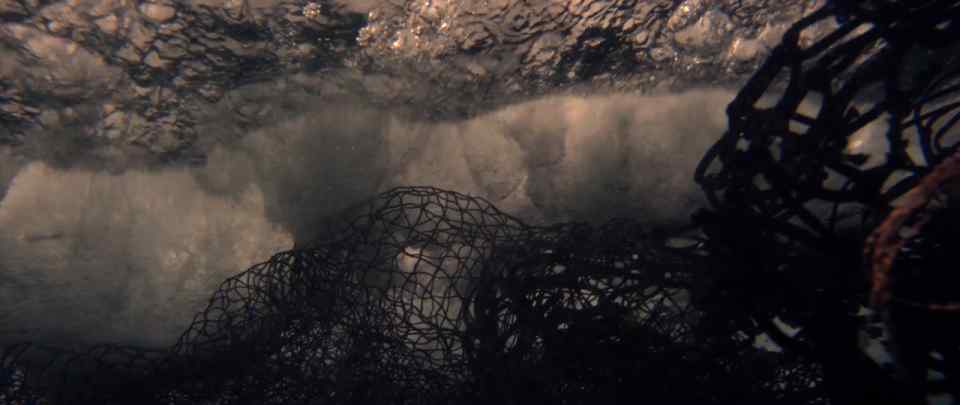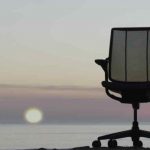Sustainable company Humanscale makes the world’s first task chair from ocean plastic waste

According to the latest data from EcoWatch, plastic constitutes approximately 90 percent of all trash floating on the ocean’s surface, with 46,000 pieces of plastic per square mile. Billions of pounds of plastic can be found in swirling convergences in the oceans making up about 40 percent of the world’s ocean surfaces. 80 percent of pollution enters the ocean from the land.
One company is doing its fair share to reduce the amount of ocean plastic waste. HumanScale is the premier designer of sustainable ergonomic seating and tools for a more comfortable workplace. Founded in 1983 by CEO Robert King with a focus on high-performance tools that support a healthy, more active way of working, Humanscale is now the global ergonomics leader with a reputation for designing intuitive products which improve the comfort and health of office workers.
Humanscale collaborated with Bureo to developed the world’s first Smart Ocean Task Chair. The chair is made from nearly 2 lbs of recycled fishing nets. Smart Ocean chair is an inventive adaption of the legendary Diffrient Smart chair that incorporates almost 2 lbs. of recycled fishing net material (NetPlus). Sourced from Bureo, an emerging venture developing innovative solutions to prevent ocean plastic pollution, this is the first tangible product of its new partnership and marks the first product available to purchase from the consortium of companies under the NextWave initiative.

“Fishing nets comprise approximately 10% of the plastic pollution in the ocean today,” says Humanscale Founder and CEO Robert King. “Our partnership with Bureo helps further our goal to achieve a net positive impact on our natural environment. The Smart Ocean task chair not only supports the health and comfort of our customers, but actually removes plastic from the ocean, supporting the overall health and well-being of a greater ecosystem.”
The nets used in the production of the new task chair are from Bureo’s Net Positiva recycling program, which facilitates the collection of discarded plastic fishing nets and provides incentives to participating coastal communities. The nets are then transformed into plastic pellets and used to manufacture quality products such as skateboards, sunglasses, and now — for the first time ever — an ergonomic task chair.
Founding members of the NextWave initiative, Humanscale and Bureo are leveraging supply chains as a means of keeping plastics out of the ocean. Smart Ocean is just the first solution to come to market. Humanscale plans to replicate material solutions across their product line, supporting the expansion of Bureo’s recycling program and lowering dependency on new plastics.
The like-minded companies share a common mission to achieve a net positive impact and are recipients of Living Product Challenge certification. Humanscale was the first company in the world to receive full certification in September 2016. Embarking on a journey to disrupt material sourcing, the two companies will work together to promote environmentally friendly design solutions.
“Focused on scaling and replicating our programs to collect and recycle discarded fishing nets, we strongly believe in the force of collaboration to align initiatives and expand impacts,” says Bureo’s co-founder and CEO David Stover. “The result is measurable and outcomes tangible as we work to prevent waste in our waterways and oceans. By joining forces with Humanscale, we are able to work cooperatively to innovate economically viable supply chain solutions that are expanding the new economy for previously discarded materials.”

